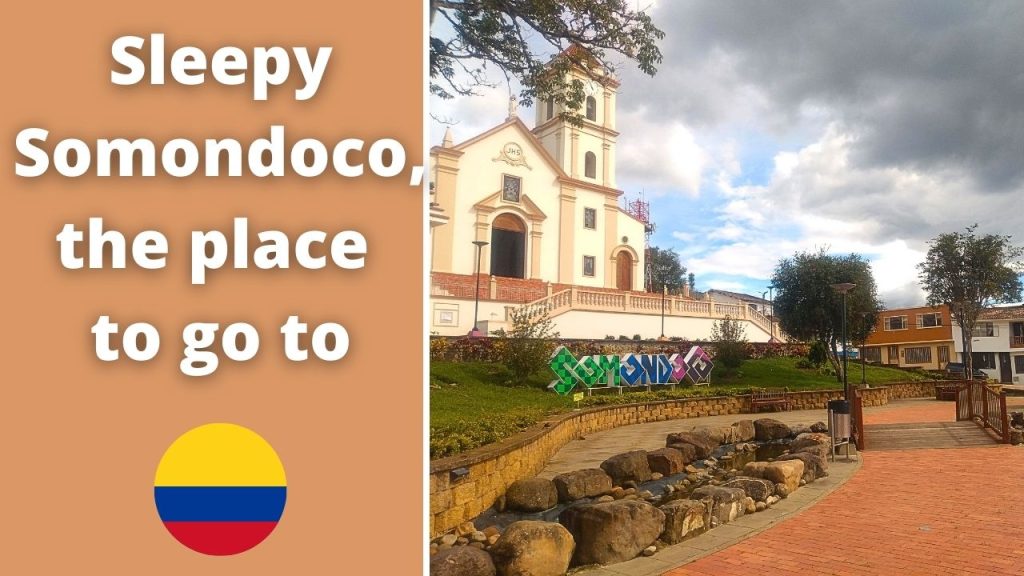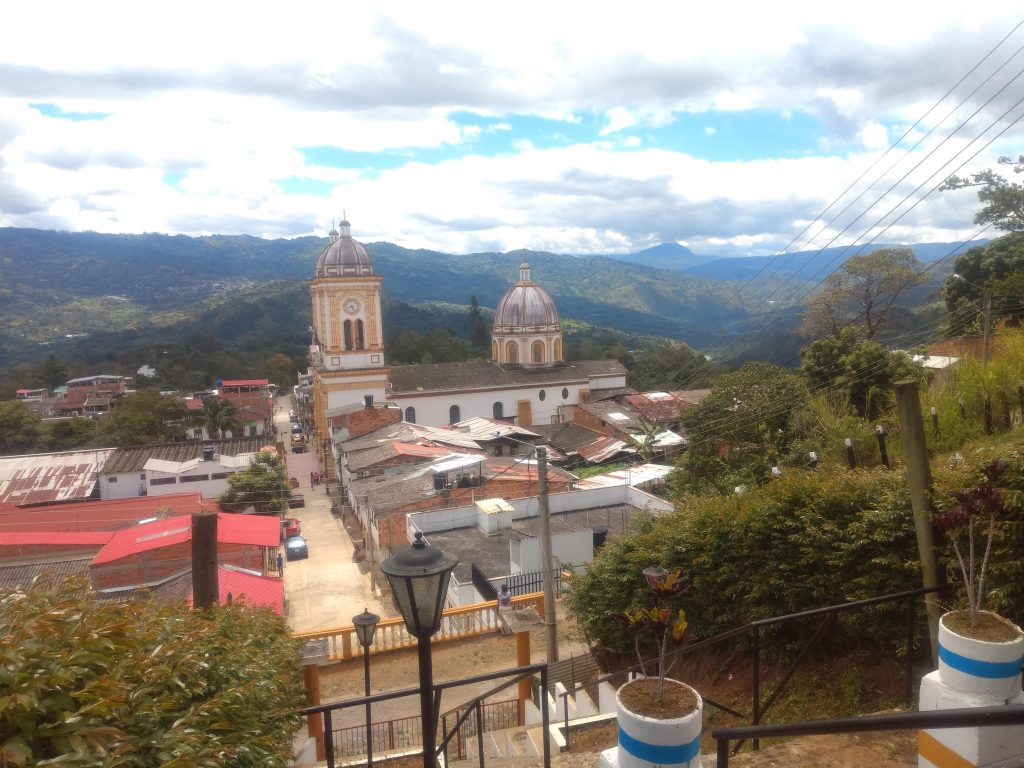[For an audio/video version of this blog story click here.]
Bucolic bliss. The rural idyll. Like anything that refers to perfection, the reality is different. Nothing in this world is perfect.
What we strive for is to have as many positives as possible in whatever it is we’re doing or wherever we’re going (both mentally and physically).
What these positives are depend on the individual. When it comes to a break from the routine, a getaway, what works wonders for one may be a bore for another.
Church-hill views
My needs for any escape from Bogotá are minimal. A lot of the time I simply have a desire to leave; the destination is almost of secondary importance.
As long as there’s a fairly cheap hotel room and quiet-ish countryside to wander about, I’m usually content. If it’s a warm-weather location, having a clean-ish watercourse of some description nearby in which one can bathe in peace whilst taking in some sun is a nice bonus.
To varying degrees, most towns within a 200-kilometre radius of Bogotá meet these rather undemanding requirements.
Of course, no matter how cosy and quiet your setting may be, at some stage loud music will trump the tranquillity. It’s practically a rule that where there’s a human settlement in Colombia, there are oversized speakers. And there’s almost always a crazy canine or two to contend with when out and about, saying nothing of the crazy human folk.
Such drawbacks were, mercifully, in short supply in the town of Somondoco, in the south-east of Colombia’s Boyacá department — my default go-to department over the last few years.
OK, it could be said that it has few pull factors, that it hasn’t anything particularly appealing to make it stand out from the many other similar Andean towns. That’s not fully true.
‘Surely the townsfolk will look to bloom big again in the coming years to win back their flower power?’
For one, it has the impressive Santuario del Santo Cristo del Cerro de Somondoco. This ornate, in-renovation chapel sits at an altitude of 2,300 metres, offering views of the neighbouring towns of Guayatá, Guateque, Sutatenza, La Capilla, Macanal and Almeida.
The landscape somewhat obscures the view of Somondoco itself, some 600 metres below. The trek up from the town to the hilltop chapel takes about two hours, a nice way to sweat out any bodily impurities.
Massive mango town
A swift walk down into the Somondao River valley and back up to the town of Guayatá, 10 kilometres west of Somondoco, also gets the body working, as well as allowing one to take in the scenic Andean countryside in relative serenity.
While I only stayed a couple of hours in Guayatá, it seemed a little livelier, in a fun way that is, than Somondoco.
More importantly, it has at least one café that makes decent coffee. Somondoco is unfortunately still stuck in the greca era; the brews available there are ordinary at best.
On a quirkier note, Guayatá has been home to two Guinness World Records: It still holds the title for the world’s heaviest mango and in 2014 it was registered as having the longest line of flowers ever recorded, a spectacle that can be seen each year in celebration of Corpus Christi. This latter record has since been beaten. Surely the townsfolk will look to bloom big again in the coming years to win back their flower power?
Back in Somondoco, while it won’t win any world record for this, the well-kept, modern Hotel Real Simindoco (no, I’m not pronouncing that wrong, it is Simindoco, not Somondoco) is a winner with me with spacious rooms from 25,000 COP per night.
So for a small town within a few hours’ drive of Bogotá, Somondoco and its surrounds have many plus points for me.
Quiet, affordable and with a few tranquil treks to traipse. If someone in the town would only ditch those grecas and learn how to make decent coffee. Nothing, though, is perfect after all.
__________________________________________________________
Listen to The Corrigan Cast podcast here.
Facebook: Wrong Way Corrigan — The Blog & IQuiz «The Bogotá Pub Quiz».



